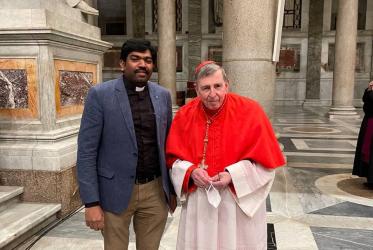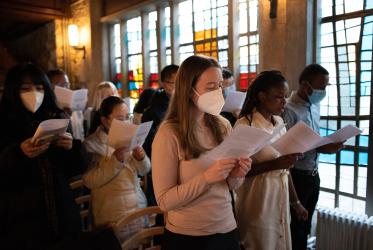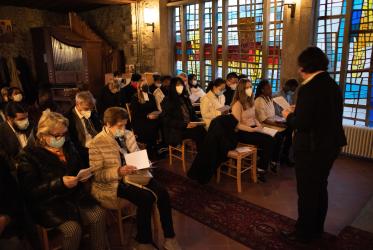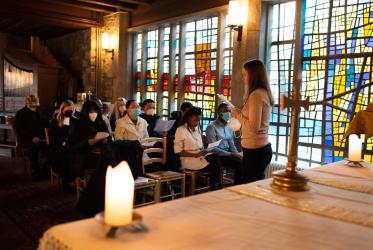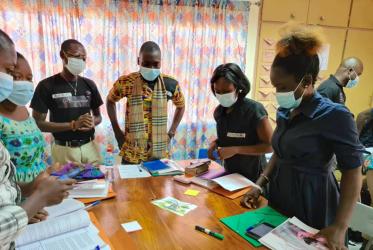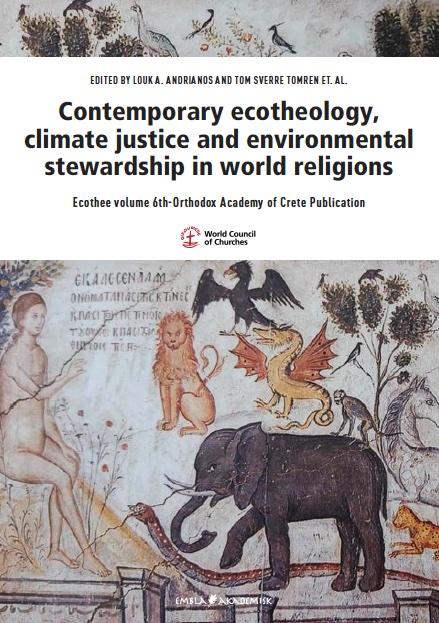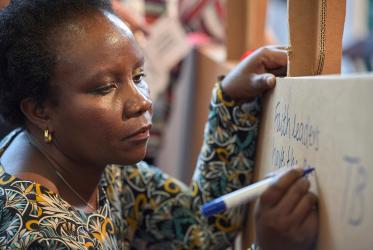Displaying 141 - 160 of 257
28 February 2022
Unity is key when health crisis poses new challenges in Asia
28 February 2022
Rev. Dr Angelique Walker-Smith receives Figel Ecumenism Award
25 February 2022
WCC leaders recall life-changing experiences from early days
10 February 2022
Bossey student Carolina Zamorano reflects on study visit to Rome
02 February 2022
Contemporary Ecotheology, Climate Justice and Environmental Stewardship in World Religions
Ecothee Volume 6th-Orthodox Academy of Crete Publication
19 December 2021
“Bathroom ministry” for the homeless
14 December 2021
Webinar explores intersection of debt cancellation and anti-racism
09 December 2021






